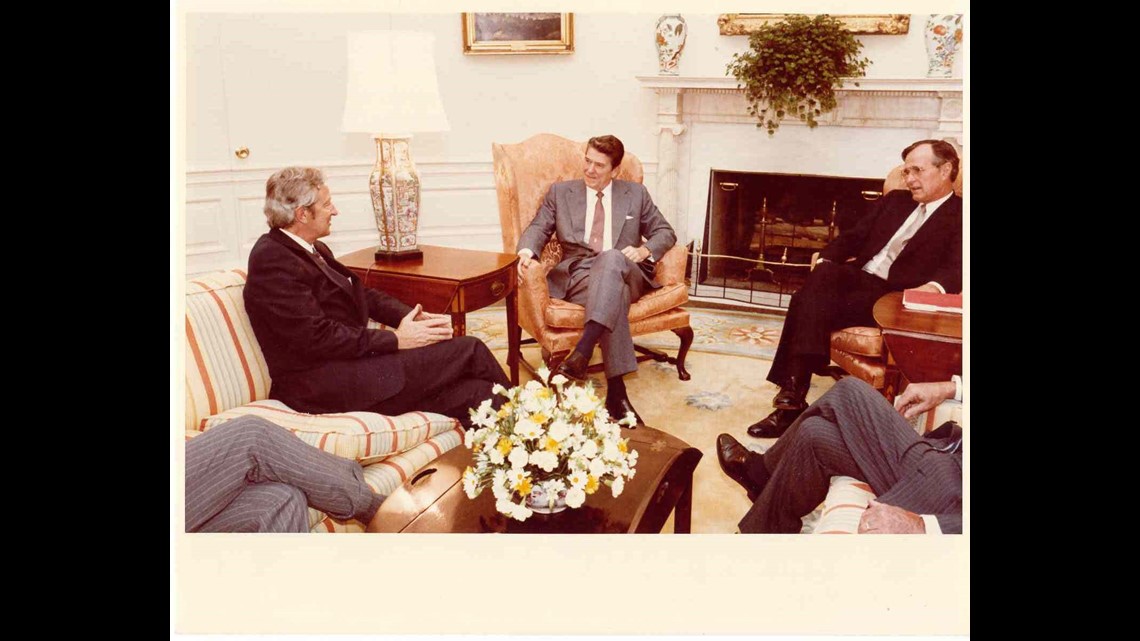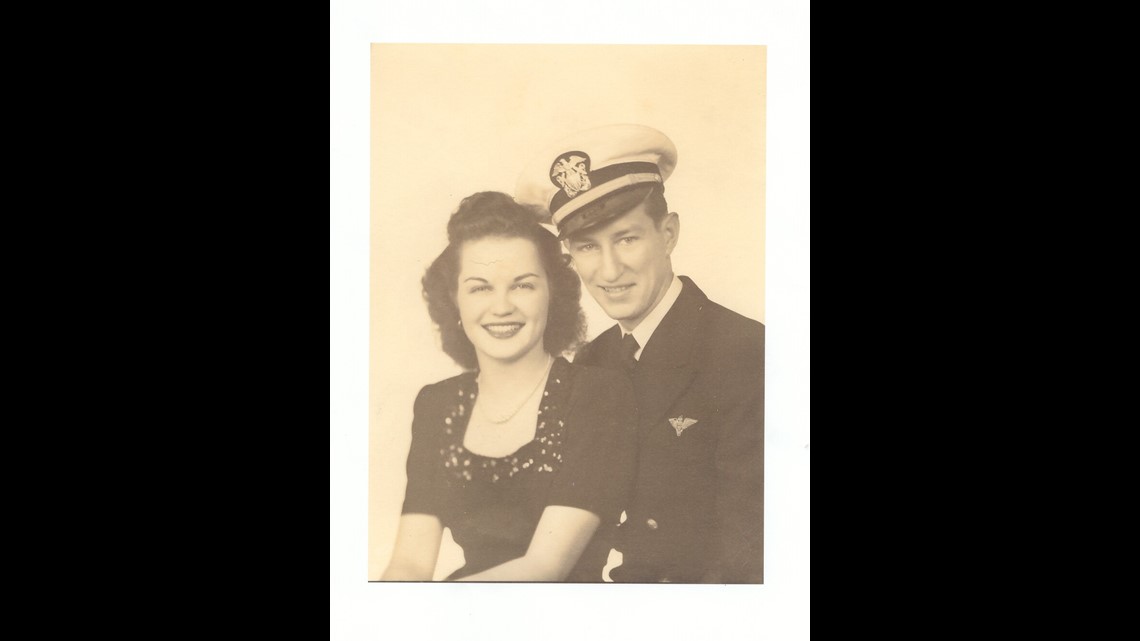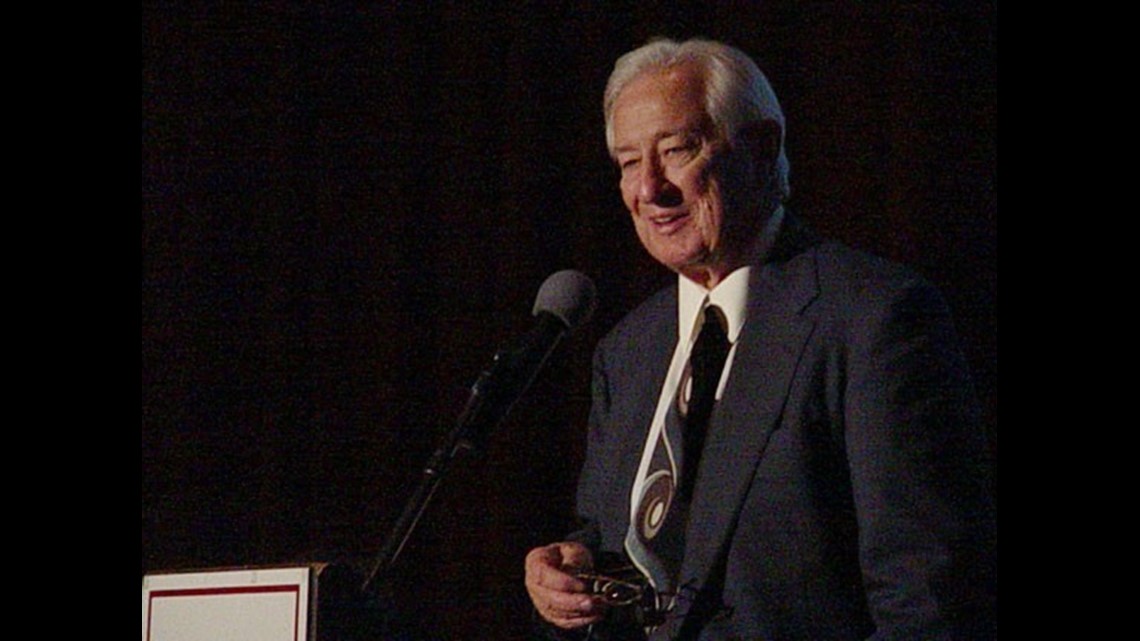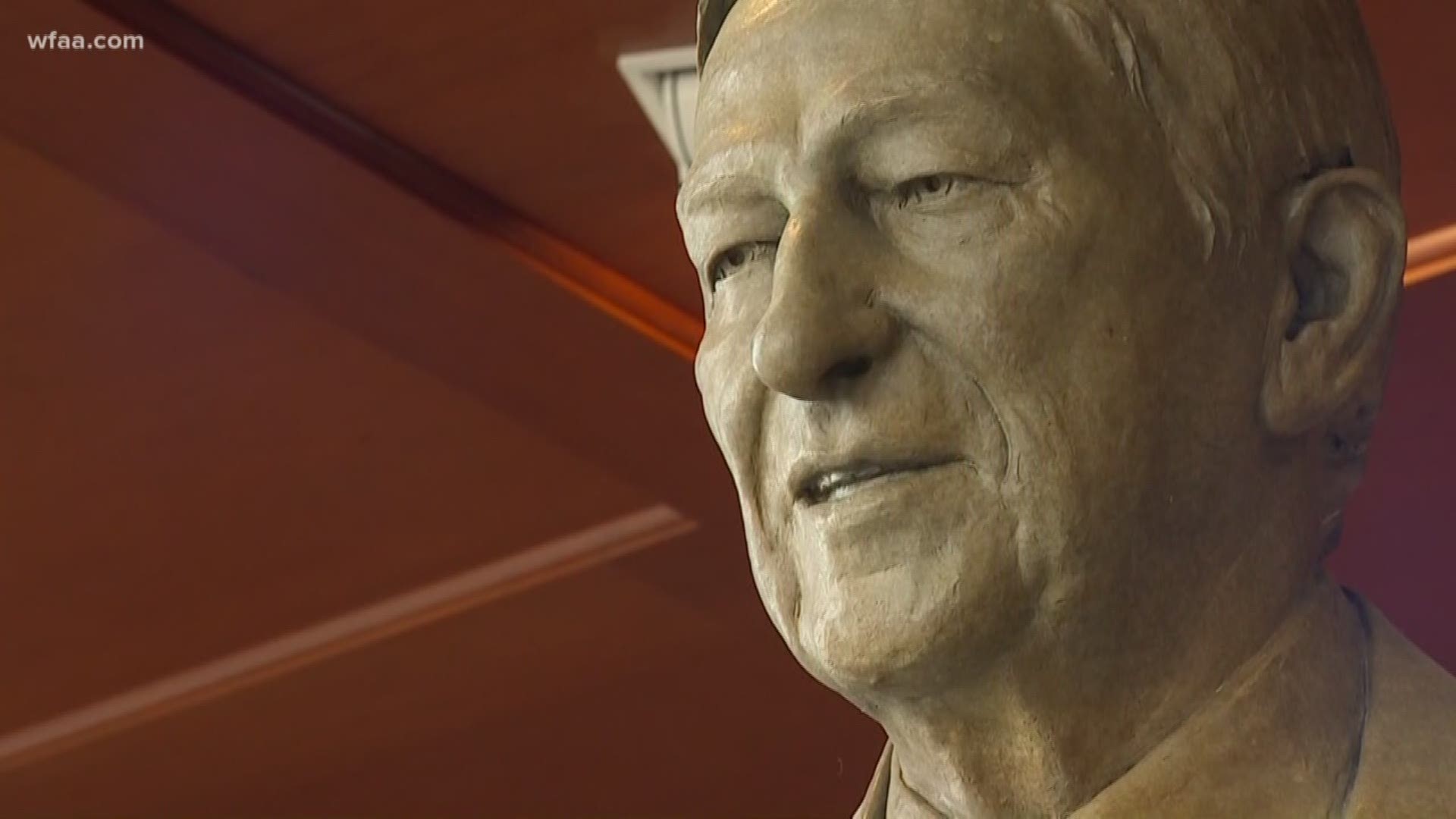AUSTIN, Texas (AP) — Former Texas Rep. Ralph Hall, the oldest-ever member of the U.S. House and a man who claimed to have once sold cigarettes and Coca-Cola to the bank-robbing duo of Bonnie and Clyde in Dallas, has died. He was 95.
Ed Valentine, Hall's longtime strategist, said the Republican and World War II veteran died at his home in Rockwall on Thursday morning. Asked about a cause of death, Valentine simply cited Hall's age, saying he hadn't been suffering from any known long term ailments.
Hall was 91 when he was defeated in a 2014 Republican primary runoff election by John Ratcliffe, a former U.S. attorney less than half Hall's age who was well-schooled in digital and data-heavy campaigning. Ratcliffe ran unopposed in the deeply red district that November.
Getting ousted by his own party came a decade after Hall became a Republican as Texas moved farther to the right. Hall served 12 terms in Congress as a Democrat but announced in January 2004 that he'd made the switch, backed by his friend, George W. Bush.
Hall, who flew Hellcat fighters during World War II, was known in Congress for promoting NASA and energy production. Hailing from the town of Rockwall, he was fond of saying that he voted with his party often but always voted with his district. But he was probably most popular for mailing or personally dolling out pennies fitted with a special silver band bearing his name.


An avid jogger who began his days with 2-mile runs, Hall marked Memorial Day 2012 — when he was 89 years old — by skydiving to honor American service members. That Christmas he became the oldest member of Congress' lower chamber, breaking the record set by U.S. Rep. Charles Manly Stedman of North Carolina, who died in office when he was 89 years, 7 months and 25 days old.
Only three U.S. senators — South Carolina Republican Strom Thurmond, who was 100 when he retired in 2003, Democrat Theodore Francis Green of Rhode Island, who left the Senate at age 93, and West Virginia Democrat Robert Byrd, who died in office in 2010 at age 92, were older than Hall while still serving in Congress.
"I'm just an old guy — lived pretty clean," Hall said just after breaking the record. "I have no ailments. I don't hurt anywhere. I may run again. I'll just wait and see."
He stuck to retail politicking, preferring to greet voters personally rather than organize formal campaign stops. Ever quick with a joke or a story, that was enough in 2012, when he bested tea party primary opponent Steve Clark, a telecommunications executive who spent around $100,000 of his own money on the campaign and was also supported by grassroots groups targeting incumbents.
But in 2014, Ratcliffe painted his opponent as a do-little Washington insider. He noted that Hall had represented the district so long that he had an airport, lake and highway named after him — and Ratcliffe used targeted data to bring that message to likely Republican voters.
Hall tried to modernize with the times, joining Twitter in 2013 and marking former President Ronald Reagan's 102nd birthday with his first Tweet. But that proved no match for Ratcliffe's data-driven campaign.
Ralph Moody Hall was born on May 3, 1923, in Fate, Texas. He attended Texas Christian University and the University of Texas, before earning a law degree at Southern Methodist University in 1951.
Like his father, Hall worked in the energy sector, helping run bulldozers during the construction of a pipeline before joining the Navy at age 19. Hall served as an aircraft carrier pilot in World War II. He married Mary Ellen Murphy in November 1944, while serving in Pensacola, Florida. The couple had three sons: Hampton, Brett and Blakeley.


After the war, Hall returned to practice law in Rockwall County, where he served as a judge from 1950 to 1962, and was elected the following year to the Texas Senate. He ran unsuccessfully in the 1972 Democratic primary for lieutenant governor and left the chamber the following January.
Hall was president and chief executive officer of Texas Aluminum Corp. and general counsel of Texas Extrusion Co. Inc. He was a counsel for the aircraft parts maker Howmet Corporation from 1970 to 1974.
Winning a U.S. House seat in 1980, Hall came to Washington just as Ronald Reagan's presidency began and was among the Democratic conservatives who sided with Reagan on key budget issues, favoring efforts to reduce federal spending.
Hall eventually became the most conservative Democrat of Texas' congressional delegation. Though the boundaries of his 4th Congressional District changed through the years due to redistricting, he generally represented an area north of Dallas and along the Red River.
He voted against the North American Free Trade Agreement and was an original co-sponsor of bills to repeal the estate tax and the marriage tax penalty. In 2001, he introduced the Social Security Preservation Act, which would prevent the federal government from using Social Security surpluses for anything other than the preservation of the fund.
Hall supported a resolution allowing America's use of force in Iraq, and voted "present" in January 2003 rather than vote for Nancy Pelosi in her bid for minority leader. Two months later, he voted for a budget that included President George W. Bush's 10-year, $726 billion tax-cut plan.


After becoming a Republican, Hall leaned heavily on his longtime friend Bush and got strong White House backing in the three-way GOP primary, winning 78 percent of the vote. In 2009, he voted against the federal bailout of the financial industry and the economic stimulus package, and was a harsh critic of federal health care reform when it was debated and ultimately approved by Congress in 2010.
Two years later, Hall was appointed chairman of the House Science, Space and Technology Committee. That October, when the Environmental Protection Agency proposed easing pollution restrictions that had angered several states, Hall said EPA's revision proved its rules were not based on sound science.
"As we have seen in Texas and throughout the United States, pursing an EPA-knows-best approach to compliance will unquestionably result in increased unemployment, power plant shutdowns and more expensive, less reliable energy," he said.
After the primary defeat to Ratcliffe, Hall injured his hip in car crash, and his recovery kept him away from Washington for much of the remainder of a term that formally ended in 2015.
Hall is survived by his three children. His wife died in 2008 at age 83, after 63 years of marriage.
Of his run-in with then-fugitives Clyde Barrow and Bonnie Parker, Hall recalled they used the pharmacy's curb-side service to buy "two cartons of Old Golds, two Coca-Colas and all the newspapers we had."
"He was a funny looking little guy. She was acceptable looking," Hall said in 2014. "I saw them. But I don't think it's that unusual. They were a lot of places."

